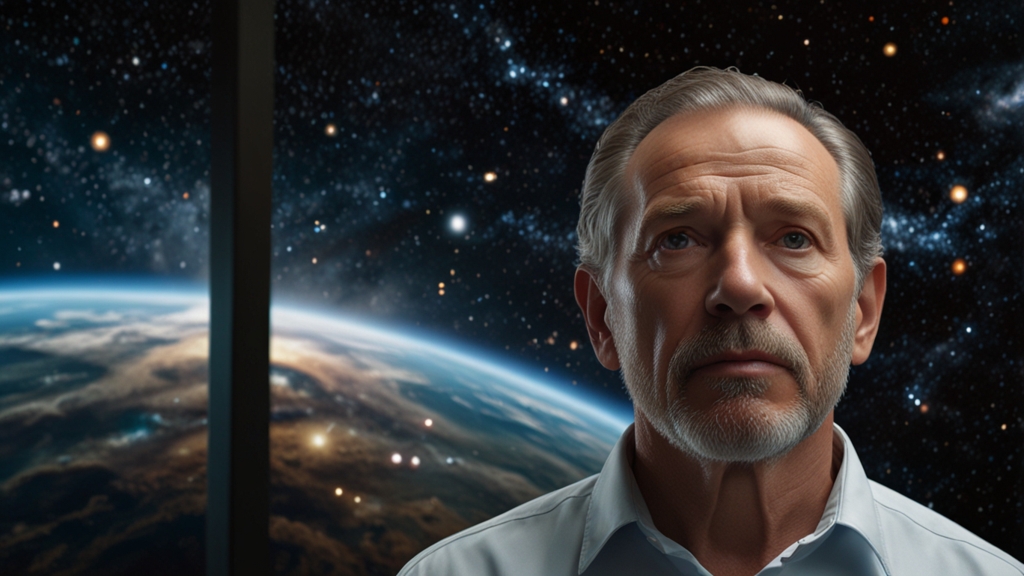Unraveling the Universe: Philosophical Takes on Reality
The quest to understand reality has been central to human existence. For centuries, philosophers have grappled with questions about the nature of the universe. How do we know what is real? Is there a fundamental truth to the cosmos, or is reality just an illusion shaped by our perceptions? These enduring questions prompt deep reflections on existence, consciousness, and the nature of the universe itself.
The Classical Philosophers
Plato and Aristotle, two of the most influential classical philosophers, provided foundational perspectives on reality. Plato's Theory of Forms posited that the material world is a shadow of a higher, unchanging reality. According to Plato, the true essence of objects lies in their abstract forms, which we can only perceive through intellectual reasoning.
“The true philosopher kings will have tested and at last proved themselves, and their strength will be that they grasp the very essence of justice.” - Plato
Aristotle, on the other hand, took a more empirical approach. He believed that reality could be understood through observation and analysis of the natural world. While acknowledging the existence of metaphysical principles, Aristotle emphasized the importance of sensory experience and logical reasoning in comprehending the universe.
The Rationalists and Empiricists
The Enlightenment period saw the rise of two major schools of thought: Rationalism and Empiricism. Rationalists like René Descartes argued that reason and innate knowledge are the primary sources of our understanding. Descartes famously declared, "Cogito, ergo sum" (I think, therefore I am), emphasizing consciousness and thought as the foundation of reality.
Empiricists such as John Locke, on the other hand, asserted that knowledge originates from sensory experience. Locke introduced the notion of the mind as a "tabula rasa" or blank slate, which is filled with knowledge through empirical observations. This debate between rationalists and empiricists reflects ongoing tensions in philosophy regarding the sources and limits of human knowledge.
Kant's Synthesis
Immanuel Kant sought to bridge the gap between these two schools of thought with his theory of transcendental idealism. Kant proposed that our understanding of reality is shaped by the interplay between sensory experiences and the mind's inherent structures. He introduced the concept of phenomena (the world as we experience it) and noumena (the world as it is in itself), arguing that while we can never access the noumena directly, we can still achieve objective knowledge within the realm of phenomena.
“Science is organized knowledge. Wisdom is organized life.” - Immanuel Kant
Modern Perspectives
In contemporary philosophy, the study of reality has evolved with advancements in science and technology. Quantum mechanics and theories of relativity have challenged classical conceptions of the universe, suggesting that reality is far more complex and interconnected than previously imagined. Philosophers like Bertrand Russell and Ludwig Wittgenstein have explored the implications of these scientific developments, questioning the limits of language, perception, and knowledge.
Moreover, the rise of existentialism, represented by thinkers like Jean-Paul Sartre and Martin Heidegger, has shifted the focus to individual experience and human freedom. Existentialists argue that reality is not an abstract concept but a lived experience, shaped by personal choices and social contexts.
Conclusion
The philosophical exploration of reality is a testament to humanity's enduring curiosity and quest for understanding. From the abstract forms of Plato to the empirical observations of Aristotle, from the rational certainty of Descartes to the experiential insights of Locke, and from Kant’s synthesis to modern existential and scientific inquiries, each perspective offers valuable insights into the nature of the universe. Ultimately, unraveling the mysteries of reality continues to be a profound journey that challenges our perceptions, expands our knowledge, and deepens our appreciation of existence.













